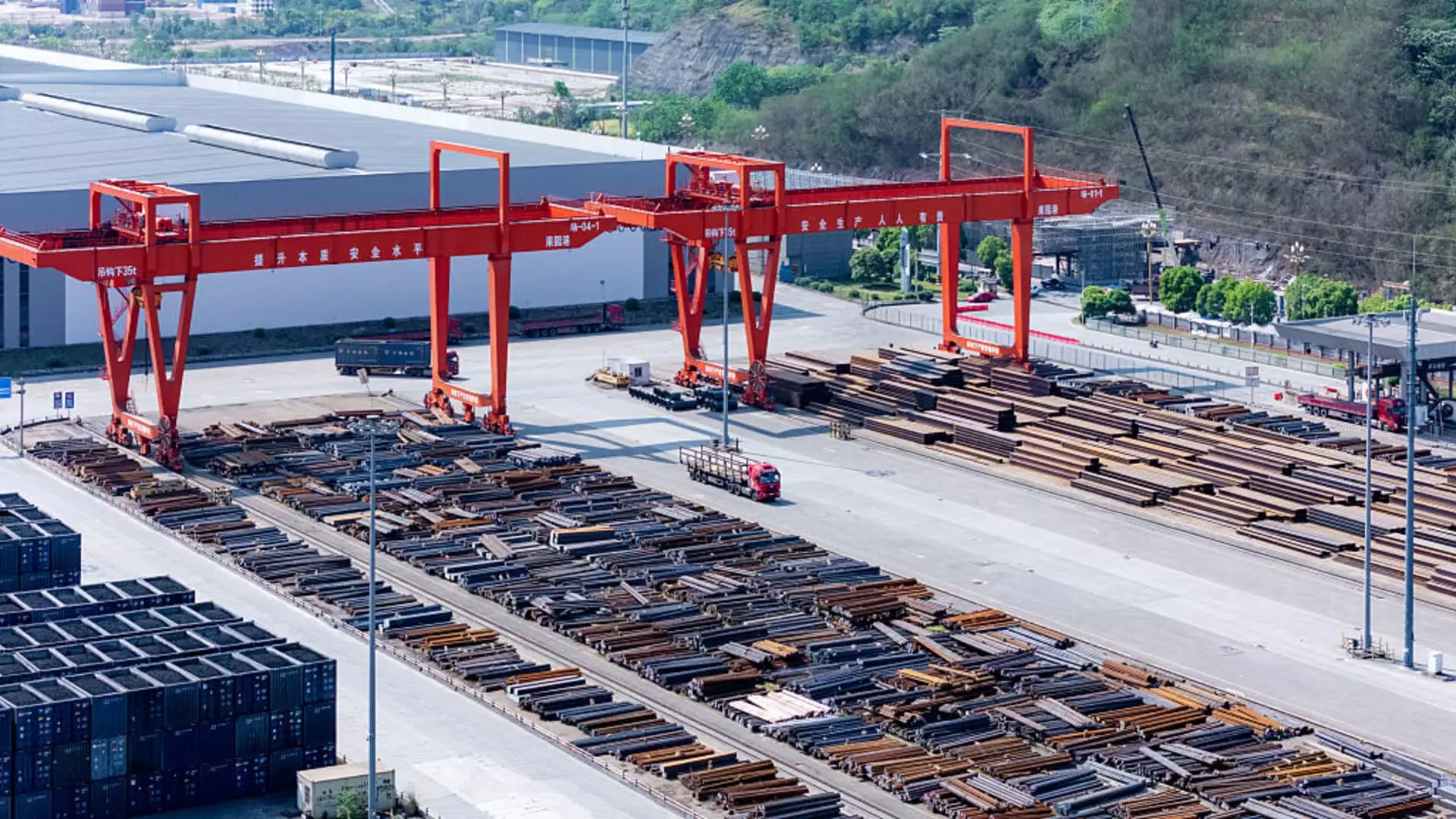In a striking declaration from Beijing, the spokesperson for the Ministry of Commerce, He Yadong, announced that contrary to expectations, there are currently no discussions taking place between the United States and China regarding tariffs. This assertion is particularly significant given recent indications from Washington, notably remarks from President Donald Trump and Treasury Secretary Scott Bessent, hinting at a potential thaw in the icy trade relations between the two global powerhouses. He Yadong’s outright dismissal of any ongoing negotiations adds a layer of complexity to an already convoluted economic landscape, one that many analysts believe needs urgent attention.
The sharp contrast between the optimism expressed in the White House and the stark reality painted by Chinese officials reinforces the notion that both nations are operating from fundamentally different playbooks. He’s insistence that any claims about bilateral progress should be disregarded speaks volumes about China’s current strategic positioning: they are firm in their stance that meaningful discussions can only occur if they are treated as equals, a phrase that underscores their sensitivities regarding national sovereignty and respect in negotiations.
Understanding the Context of Tariff Hostility
The backdrop to this volatile situation is the imposition of hefty tariffs by the U.S. on Chinese imports, a move that has not only escalated tensions but has left both economies in a precarious position. In retaliation, China’s response included duties on American goods and a tightening of restrictions on critical minerals, which are crucial for various high-tech industries. This tit-for-tat approach has not only exacerbated existing economic strains but has also disrupted global supply chains, creating ripples far beyond the two nations involved.
Yue Su, a principal economist from The Economist Intelligence Institute, articulates the fundamental worry that drives China’s current approach: the realization that the trade war is detrimental to both economies. Yet, there is a palpable shift in China’s strategy, moving from a focus on the U.S.’s needs to an emphasis on its own prerequisites. This shift signals a more assertive Beijing, one that is ready to protect its interests fiercely.
The Dissonance of Values Between the Two Superpowers
For China, the recent wave of aggressive tariff strategies initiated by the U.S. symbolizes a unilateral action that is at odds with the principles of fair trade. He Yadong’s statement specifically urged for the cancellation of these tariffs as a prerequisite for future discussions—a proposal that highlights the growing disconnect between U.S. policy intentions and Chinese expectations. The notion of fairness has taken center stage in this drama, and both sides appear to be trapped in a narrative constructed by their respective national interests.
Jianwei Xu, a senior economist for Greater China at Natixis, elucidates the hurdles that lie ahead. He suggests that any genuine negotiations would realistically require the U.S. to backtrack considerably on tariffs, potentially lowering them to previous levels of 20% or less. However, from a political standpoint, such concessions could render the motives behind the initial confrontations redundant, exposing the administration to criticism and scrutiny.
Future Implications and Considerations
As analysts dissect the implications of the current standoff, the crucial point emerges: the ongoing trade volatility is impacting national GDP forecasts. Major Wall Street banks have begun to downgrade their projections for China’s economic growth, reflecting the significant repercussions of the tariff wars. The Commerce Ministry’s emphasis on redirecting Chinese exports to domestic markets illustrates a pragmatic shift—one that seeks to buffer the Chinese economy against foreign adversities while fostering internal resilience.
This environment of unpredictability may well prompt a more hawkish stance from China, especially if the U.S. continues its pattern of aggressive tariffs. In a world where economic strategies are inextricably linked to political will, the landscape of U.S.-China relations remains fraught with potential missteps and misunderstandings. Ultimately, clarity, mutual respect, and an honest dialogue about each nation’s needs and concerns may be the only way out of this labyrinthine crisis. In a context where clarity is elusive, both nations must evaluate the long-term consequences of their current trajectory—a trajectory that has the potential to reshape the global economic framework profoundly.

